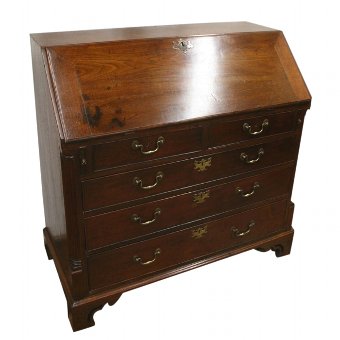featured item

quality pair of antique edwardian postal scales and weights Read more
antique dutch burr walnut floral marquetry bureau c.1780

antiques available from other sellers in antique furniture > bureaus
-
![Dutch Marquetry Bombé Bureau]() £6500.00
£6500.00dutch marquetry bombé bureau Read more
Georgian Antiques -
![Antique Dutch Marquetry Bombe Bureau]() £6750.00
£6750.00antique dutch marquetry bombe bureau Read more
Georgian Antiques -
![Drawer writing bureau, Walnut bureau, Chest of drawers, Cabinet]() £480.00
£480.00drawer writing bureau, walnut bureau, chest of drawers, c... Read more
Private seller -
![George III Unusual Red Walnut Bureau]() £2650.00
£2650.00george iii unusual red walnut bureau Read more
Georgian Antiques
- View other items in:
- antique furniture
- bureaus
Still not found something similar? Why not save a search and get a notification in your inbox when an matching antique is added to our ever-growing database?
Enter your email address to be sent alerts when new items are added to the site that match your search criteria

This is a stunning antique late 18th Century Dutch burr walnut and marquetry bombe'bureau.
The serpentine fall opens to reveal a fabulous interior with a myriad of small drawers and several secret compartments, there is a small central mirror doored cupboard which is flanked by a pair of columns with secret compartments that slide out.
It is Circa 1780 in date, is in truly remarkable condition for its age and this exceptional piece represents a fantastic example of 18th century Dutch cabinetry at its very finest.
Condition:
Our reference: 07653
Burr Walnut
refers to the swirling figure present in nearly all walnut when cut and polished, and especially in the wood taken from the base of the tree where it joins the roots. However the true burr is a rare growth on the tree where hundreds of tiny branches have started to grow. Burr walnut produces some of the most complex and beautiful figuring you can find.
Marquetry
is decorative artistry where pieces of material (such as wood, mother of pearl, pewter, brass silver or shell) of different colours are inserted into surface wood veneer to form intricate patterns such as scrolls or flowers.
Antiques.co.uk Ref: 6KMP778JD
- Width (cm):
- 141
- Height (cm):
- 111
- Depth (cm):
- 65
Here on antiques co uk we love antiques and specialise in selling antiques. Even though this item was for sale and is now sold or otherwise now unavailable we have many more items for sale including vintage antiques, silver, tables, watches, jewellery and much more for your interiors and home.
Search all the antiques currently for sale on www.antiques co uk. Or why not consider selling your antiques and making sales more easily with us!
regent antiques limited
Regent Antiques Limited has 986 antiques for sale.
click here to see them all









